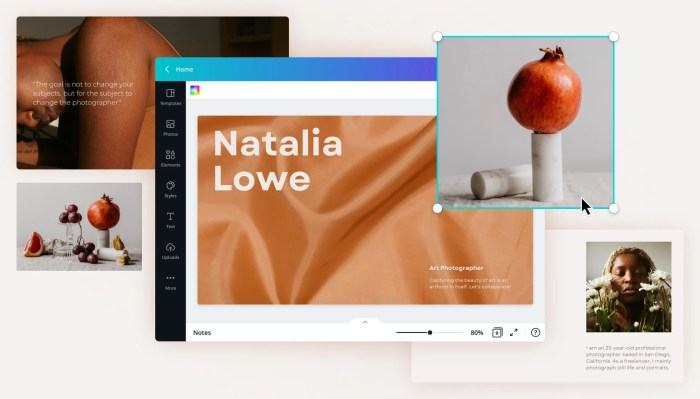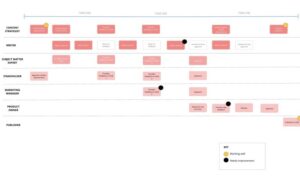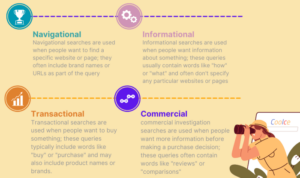Building an Online Portfolio dives into the importance of showcasing your expertise online in a sleek and professional manner, essential for professionals across various industries. From highlighting key elements to choosing the right platform, this guide has got you covered.
Importance of an Online Portfolio
Having an online portfolio is essential for professionals across various fields in today’s digital age. It serves as a powerful tool to showcase skills, experience, and expertise to potential employers, clients, or collaborators. Here’s why having an online portfolio is crucial:
Enhanced Visibility and Credibility
An online portfolio allows professionals to present their work in a visually appealing and organized manner. It provides a centralized platform where individuals can highlight their achievements, projects, and capabilities. This increased visibility helps in standing out from the competition and establishing credibility in the industry.
Global Reach and Accessibility
With an online portfolio, professionals can reach a global audience without geographical limitations. Whether it’s a freelance designer, photographer, writer, or any other creative professional, having an online portfolio enables them to showcase their work to potential clients or employers worldwide. It also ensures that their portfolio is easily accessible anytime, anywhere.
Industry Examples
– Graphic Design: Graphic designers can display their design projects, logos, branding work, and illustrations in an online portfolio to demonstrate their creativity and skills to potential clients.
– Photography: Photographers can showcase their best shots, photo series, and editing styles through an online portfolio, attracting clients for events, portraits, or commercial projects.
– Writing: Writers can feature their published articles, blog posts, essays, and writing samples in an online portfolio to demonstrate their writing style, expertise, and versatility to publishers, editors, or clients.
Elements of a Strong Online Portfolio: Building An Online Portfolio
Building a strong online portfolio requires careful consideration of key components that showcase your skills and experience effectively. Here are some essential elements to include:
Work Samples
- Include a variety of work samples that highlight your skills and expertise in different areas.
- Organize work samples into categories or projects to make it easy for visitors to navigate and find what they are looking for.
- Ensure that each work sample is accompanied by a brief description or explanation to provide context and showcase your thought process.
Professional Bio
- Write a concise and engaging professional bio that Artikels your background, experience, and achievements.
- Include relevant information such as your education, work history, and any awards or accolades you have received.
- Use a professional tone and highlight what sets you apart from others in your field.
Contact Information
- Make it easy for potential clients or employers to get in touch with you by including clear contact information on your online portfolio.
- Provide multiple ways for people to reach you, such as an email address, phone number, and links to your social media profiles.
- Consider including a contact form on your portfolio for visitors to easily send you a message or inquiry.
Choosing the Right Platform

When it comes to building your online portfolio, choosing the right platform is crucial for showcasing your work effectively. Whether you opt for a personal website or a portfolio hosting site, there are several factors to consider in order to make the best decision for your needs.
Comparison of Platforms
- Personal Website: Allows for maximum customization and control over design and content. However, it requires more technical know-how to set up and maintain.
- Portfolio Hosting Sites: Offer templates and easy-to-use interfaces, making it simpler for those without web development skills. They may have limitations on customization.
Factors to Consider
- Customization Options: Decide how much control you want over the look and feel of your portfolio. Personal websites offer more flexibility in design.
- Ease of Use: Consider your comfort level with technology. Portfolio hosting sites are user-friendly, while personal websites require more technical skills.
- Cost: Evaluate the pricing plans of different platforms. Some portfolio hosting sites may have subscription fees, while personal websites have domain and hosting costs.
Optimizing Your Platform
- : Ensure your portfolio is optimized for search engines by using relevant s in your content and meta tags.
- Mobile-Friendly: Make sure your portfolio is responsive and looks good on all devices, as many visitors will view it on their phones or tablets.
- Clear Navigation: Organize your work into categories and make it easy for visitors to find what they are looking for.
Showcasing Work Samples

When it comes to selecting and displaying work samples in your online portfolio, it’s crucial to showcase your best work that highlights your skills and experience. This helps potential clients or employers understand the quality of work you can deliver.
Selecting the Best Work Samples
- Choose samples that are relevant to the type of work you want to attract.
- Showcase a variety of projects to demonstrate your range of skills and expertise.
- Prioritize recent work that reflects your current abilities and style.
- Select pieces that you are proud of and that best represent your unique talents.
Importance of Updating Regularly, Building an Online Portfolio
Regularly updating and refreshing your online portfolio is essential to show your growth and progress as a professional. It also keeps your audience engaged and interested in your work.
Presenting a Variety of Work Samples
- Include different types of projects to showcase your versatility and adaptability.
- Show examples that highlight various skills such as design, writing, coding, etc.
- Demonstrate your ability to work on different platforms or mediums.
- Ensure a balance between quantity and quality to provide a comprehensive view of your capabilities.





